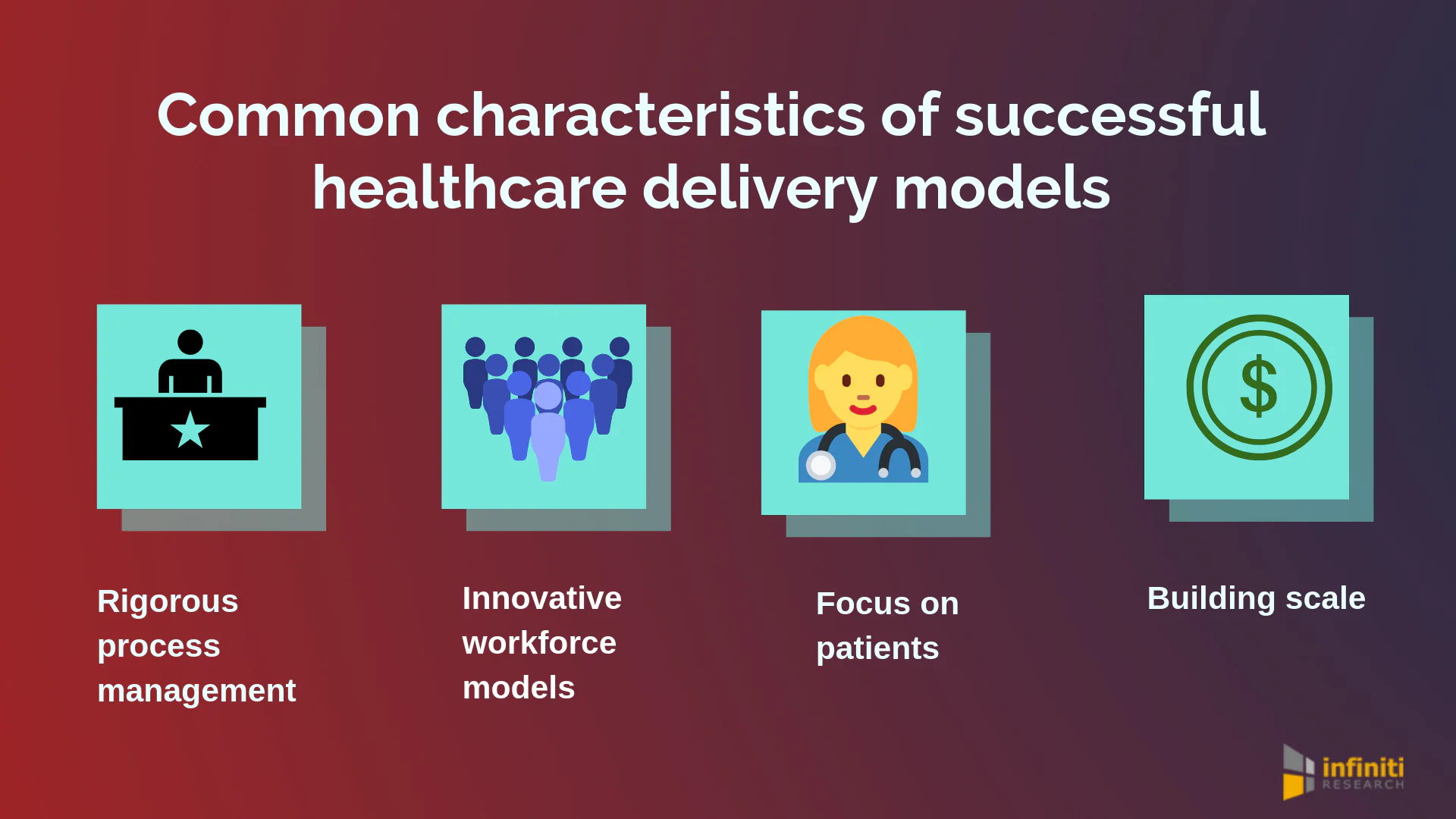Delivering high-quality, accessible, and affordable care are some of the key challenges faced by healthcare systems globally. Healthcare delivery systems must be equipped to address these challenges via the evolving healthcare delivery models. This blog explores some of the new healthcare delivery models and how they are designed to meet the unique needs of complex patients, ensure consistent adoption of best clinical practices, give greater emphasis on delivering care in the most efficient way, and the changing focus to outcomes rather than inputs.
The global healthcare industry is undergoing a period of transformation. Stay on par with the top players in the market by choosing innovative healthcare delivery models. Request a free proposal to know how our experts can help you achieve this.
New healthcare delivery models
Out-of-hospital delivery models
Proactive and intensive care for complex conditions
There has been a rapid rise in the number of people diagnosed with long-term and complex conditions in the last decade. These conditions are driven by increasingly unhealthy lifestyles and aging populations. Healthcare delivery systems must identify more proactive ways to manage these patients in the community as well as in their homes. For instance, there are healthcare delivery models in the US that provides holistic care for older patients with multiple long-term conditions through a one-stop-shop. Here, the patients have access to a range of specialists and expanded primary care. Such establishments have not only improved patient outcomes for older and poorer patients, but also reduced hospitalization rates, readmissions, and provided better care and outcomes.
Access to urgent medical care
One of the key challenges faced by every health care system is to avoid unnecessary admissions into their emergency departments. Our healthcare industry analysis in the UK and several other European countries suggest that easy access to high-quality primary care has a real impact on patients. For example, there was a reduction in emergency attendance in Central London with the introduction of general practitioner services seven days a week.
Local access to care for children
Several providers are adopting healthcare delivery models that involve redesigning local services for children to provide high-quality care supported by a network of specialists made available when children and their families most need it. A typical pediatric services model includes one inpatient unit per one million people. It is supported by a network of pediatric assessment units with a 14/7 access to high-quality primary children’s care services. These services include same-day telephone consultations for children with a primary care professional, a telephone hotline for these professionals to seek advice from a consultant pediatrician, and also outreach clinics to treat children with complex health needs and thereby avoid hospital referrals.
Interested to know more about our solutions for the healthcare industry and how they can help you transform into a world-class organization? Request a free brochure.
Hospital healthcare delivery models
Specialist centers of excellence
Healthcare delivery models in the form of specialist centers for stroke, cardiac arrest, cancer, and major trauma services are seen to phenomenally successful in the UK. The scale is also achieved through a chain or franchising across multiple sites. These specialist centers have shown immense progress in terms of ensuring adequate care and high-quality treatment to patients.
Community-based hospitals
The success of healthcare delivery models in the form of smaller hospitals requires creative thinking on the workforce along with a recognition that not every hospital has a full range of acute services. These establishments cater to specific healthcare services such as emergency services or surgery, ensure shorter wait times and faster availability of treatment for patients.

To learn more about Infiniti’s solutions for the healthcare industry – Request more info.


